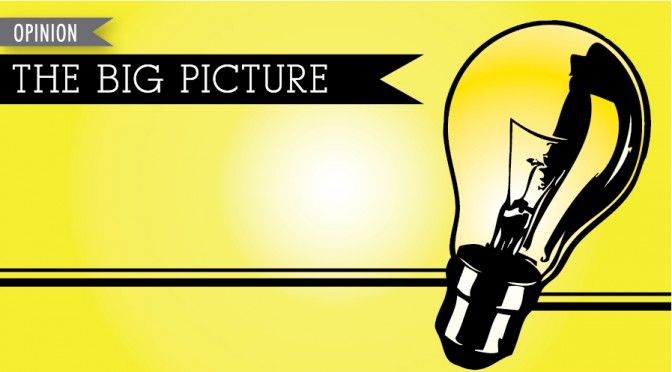
We don’t live in an isolated state
By: Annie Sragner, Arts & Life Editor
After first hearing the term in my tropical ecology and conservation class, my life keeps reminding me of this concept called an “ecological vacuum.”
The phrase refers to the condition that we exist not in an isolated vacuum, but rather as an entity that is constantly-interacting with members of our own species and members of other species. Even if we do not interact face-to-face with specific other individuals, our coexistence still has consequences within the environment.
For example, consider the way that we routinely obtain food. Since humans have worked over time to create a civilized society, we are afforded the luxury of buying mass-produced food from grocery stores and supermarkets in order to feed ourselves.
Rather than having to hunt and gather food to survive, we installed middle men who acquire and process the food for us. This process provides a convenient way to save time and energy that could be spent on other tasks.
Although this method of production makes it easy on the consumer, it creates an illusion that separates us from the source of our consumption. There is a sheath of anonymity that allows us to avoid directly facing the plants and animals we ingest on a daily basis.
Imagine how drastically our global eating habits would change if we had to find the ingredients ourselves. It would be much more laborious and emotionally-taxing if we had to harvest and slaughter instead of grabbing a burger for a dollar from a fast-food drive-through.
Because we live by these systems that allow us to turn a blind eye to our impact on the world, we prevent ourselves from seeing outside the perspective of human priority. We want everything as fast, easy and cheap as we can make it, but that is not a sustainable or responsible way to flourish on this planet.
The good news is that it is not too late to change, but our window is narrowing rapidly. The solution lies in the acknowledgement and active awareness that we do not exist separately from other species and that our indirect actions make a direct impact on the world at large.
Consider the type of contribution you would like to make to the world you live in. We all have the choice to either destroy or create during our time here, and it depends on the type of outcome we would like to see.

